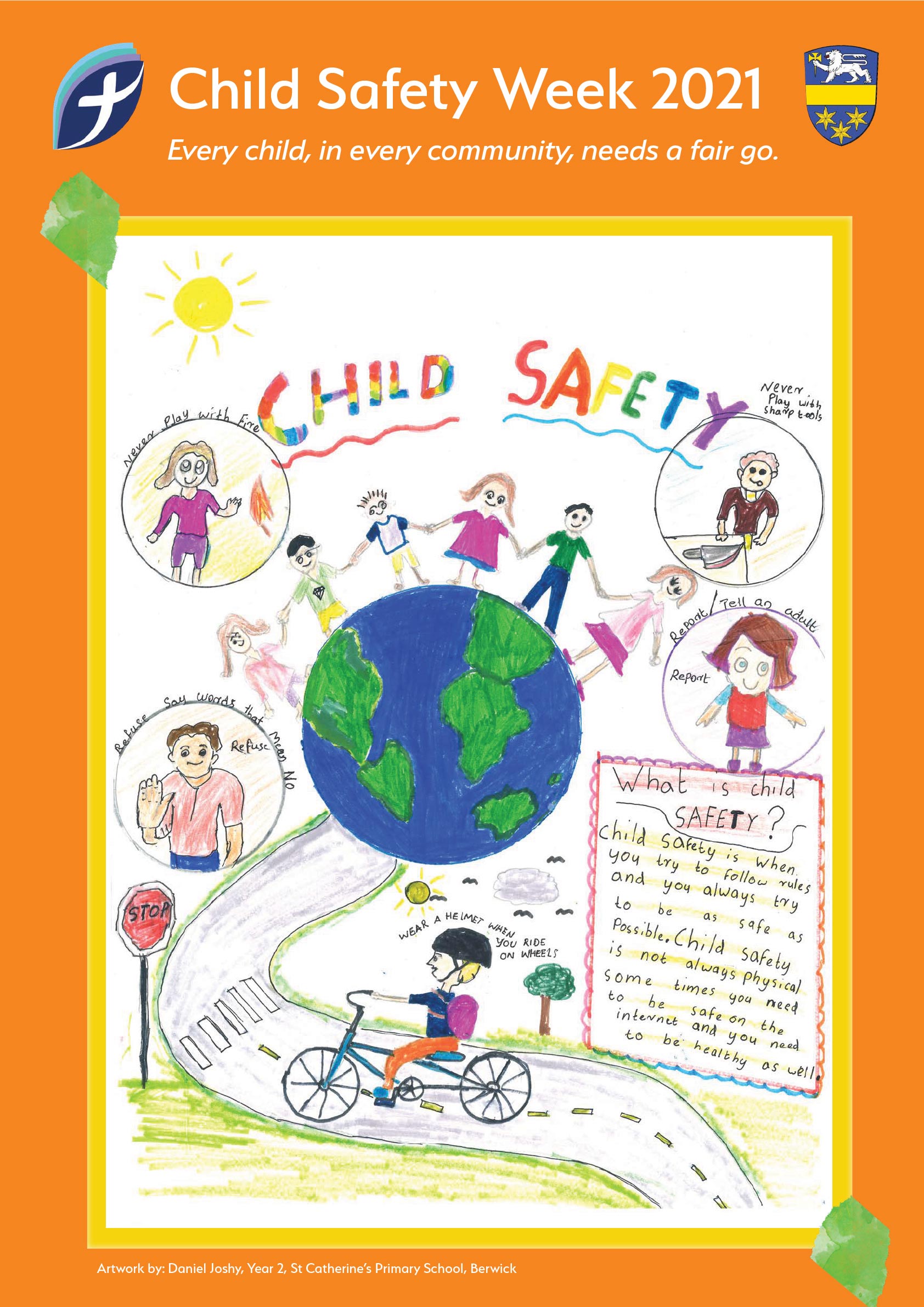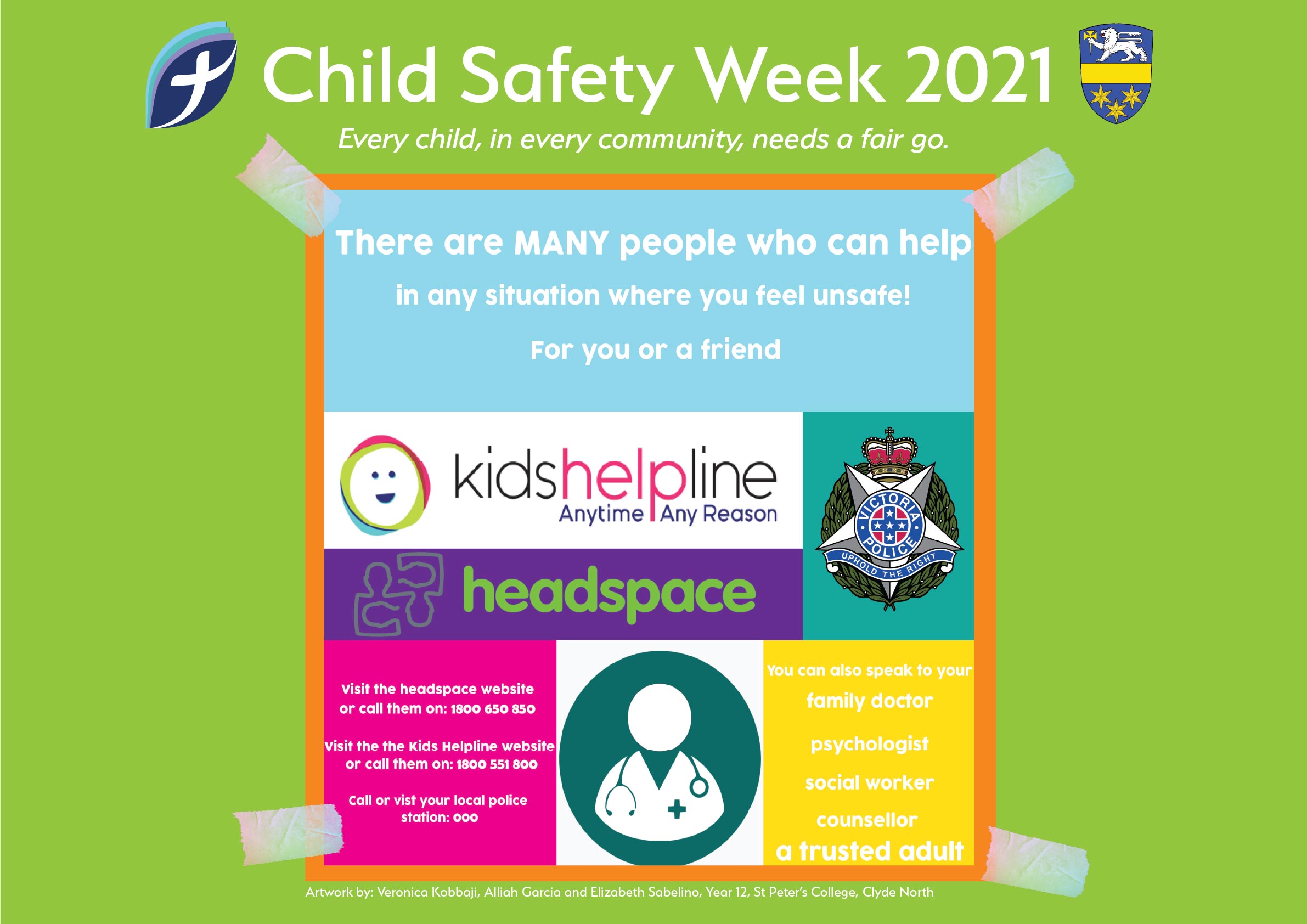From lessons in school, your child would have been taught ways to keep safe. However, reinforcing this at home through conversations with them is recommended. It also empowers you as a parent.
Before you start, it is very important that you read through this resource first and make a specific plan of how you will introduce each of the topics or ideas. Feel free to adjust the points below according to the age of your child and your own judgement and belief. You are best to gauge this. You need to think about the reaction your child might have and how you are going to answer their questions.

Talk to your child about ‘boundaries’. Everyone needs boundaries both children and adults.
If you look around, there are boundaries everywhere such as a fence around the home, the backyard, the school or a playground. The idea of a fence is to demarcate visibly a boundary where outsiders should not trespass.
Boundaries bring clarity.
Tell your child that everyone needs to be able to say ‘No’ when boundaries are breached. One boundary that needs to be respected is that of the space around their bodies: who is allowed to come near or touch their bodies?
Discuss with your child that everyone is unique. No-one else in the whole world has fingerprints the same as your child. Their bodies are unique and have been given by God and they and you have the duty to look after and care for it.
Their bodies (which includes their mind) are sacred and are a gift from God. Sacred means that they are connected with God. Because they are connected with God, their bodies should be kept private for God. It is not to be shared with anyone in anyway until they are ready to share their whole selves with another person when they get married.
A clear boundary that needs to be put in place is that of not taking photos or looking at photos of private parts (parts covered by their underwear) as this is like sharing their body with someone else. If they do this, they may end up confusing their body and get upset. The effect of this is very subtle and may last the whole of their life!
Ask your child about times they have felt strange, ‘off’, or uncomfortable, and to describe how that felt. Share with them that ‘uncomfortable feelings’ are meant to be listened to and are a sign within the body, which is God’s app within, that tells them that something is wrong.
You may like to talk about ‘tricky people’ who may be unsafe. These people are not just strangers like someone who might ask directions but people that they actually know and may see on a regular basis.
You need to let your child know that if they encounter uncomfortable feelings, they are in charge of their safety and should come to you or someone they trust to talk about it.
Explain to your child that ‘tricky’ people pay a lot of attention to kids and give them treats. They may want a hug from them, even when they tell them to stop. ‘Tricky’ people may say nice things to them, especially about how they look.
Children need to recognize the empty compliments often given by ‘groomers’. A groomer is someone who is intent on preparing the child to like them and to trust them before doing something bad to them either in person or online.
Children need to be able to recognize and sense this. This can be learned from the family where empty compliments should be avoided. Empty compliments are those that state something without a reason. For example, “Aren’t you pretty?” or “Aren’t you clever?” without a qualification. It is better to qualify “Aren’t you pretty?” with the reason, such as “I love the colour of the clips and ribbons you’ve got in your hair. I love the hairstyle; it suits your face.”
Another example would be: “I’m proud of your effort. I know that you found it challenging. Look at the results. Well done. That was a clever thing to do.”
Ask your child about secrets. There are good secrets and bad secrets. Good secrets are like Birthday surprises. Bad secrets might be when someone touches or tickles their private parts or shows them images or videos of private parts. Bad secrets must never be kept, no matter who is asking them to keep that secret, even if it is a member of the family, a friend of the family or even if they threaten bad things will happen. Nothing will happen to them or their loved ones. They need to tell you or a trusted friend about this.
Ask your child if they have identified and named trusted adults in an exercise at school. They have probably done this. It might have been the drawing of their hand on a piece of paper with the names of individuals on each of the five fingers. These would be people they trust and to whom they could go to.
Act out and role play situations with ‘tricky’ people – both those who are strangers and those who are known family friends.
Example:
Give clear steps to follow:
Step 1: Loudly say, “No!”
Step 2: Run away. Emphasize this is important and is not rude.
Step 3: Find a trusted adult to tell.

Talk to your child about online predators. Make clear that some online predators are adult men or women pretending to be children. Some are young adults or even teenagers. These predators meet children through social networks, gaming platforms and in chat rooms.
Warn them not to chat privately with someone that they do not know, no matter how innocent it seems.
Even if they are chatting with people that they do know, discuss with your child the way in which ‘groomers’ will engage with them and what to look for.
Warn your child about online flirting
It may seem very exciting at first to flirt online. The predator starts with discussing what they are wearing or celebrities’ sex lives. Predators are looking for children who want to talk ‘dirty’ and share explicit photos or articles.
Remind them not to engage in a trade i.e. “If you give them something, they give you something”. If this happens, remind them to block their messages and tell a trusted adult.
Peer pressure
Watch out for peer pressure and learn to say ‘No’. This will protect their safety.
Reminders
Remind them to be careful and of what was discussed earlier:
If your child sees something that is suspicious or makes them feel uncomfortable, ask them to report it to you, their teacher or a trusted adult.
For more support with online safety targeted to parents, access the eSafety Commissioner page for parents:
https://www.esafety.gov.au/parents
The eSafety Commission provides a wide range of resources for children of different ages as well as parents to assist them keep their children safe online.
God Our Father.
Thank you for the gifts of our bodies which you have made so perfectly. Thank you for the ‘app’ in built within us which tells us things to look out for and for the Spirit that guides us. Thank you for those whom we can trust to look after us.
May your Spirit always dwell within us and our families to keep us safe for you O Lord.
Amen.
This page has been developed by Catholic Diocese of Sale, Safeguarding and Professional Standards Office.